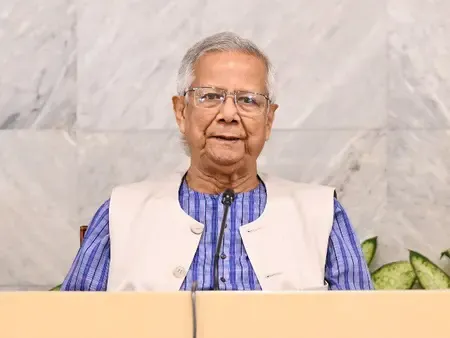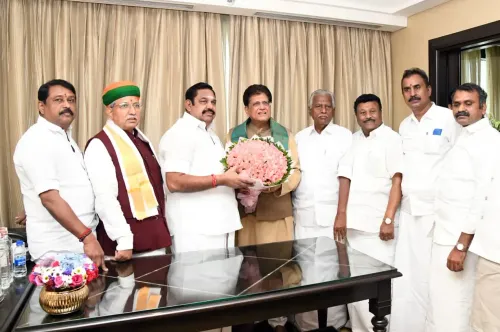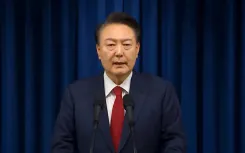Are Comprehensive Reforms Transforming India's Business Landscape to Attract Investments?

Synopsis
Key Takeaways
- Comprehensive reforms are being implemented to enhance the business environment.
- The GDP growth is projected between 6.3% and 6.8%.
- Focus on attracting both domestic and foreign investments.
- Significant FDI reforms are taking place across various sectors.
- The Union Budget prioritizes investment as a key growth driver.
New Delhi, Aug 4 (NationPress) The government has actively initiated extensive reforms aimed at enhancing the business climate, drawing in investments, and fostering economic development, as reported in Parliament on Monday. The country anticipates a GDP growth rate of 6.3 percent to 6.8 percent for the current fiscal year (FY26).
Among these initiatives are various measures under the Ease of Doing Business program, which encompasses the Business Reform Action Plan (BRAP), Business-Ready assessment, Jan Vishwas, and efforts to reduce compliance burdens on both businesses and citizens. This was disclosed by the Minister of State for Finance, Pankaj Chaudhary, in a written response to a Lok Sabha inquiry.
According to the latest Provisional Estimates of Gross Domestic Product (GDP) released by the Ministry of Statistics and Programme Implementation, GDP at constant prices is anticipated to grow by 6.5 percent in 2024-25.
This growth is largely attributed to a strong performance in the construction sector (9.4 percent), public administration, defence and other services (8.9 percent), and financial, real estate, and professional services (7.2 percent).
Looking forward, the Economic Survey 2024-25 forecasts GDP growth for the year 2025-26 to be between 6.3 percent and 6.8 percent.
The government has implemented several initiatives to draw increased domestic and foreign investment, with a focus on robust capital expenditure, infrastructure enhancement, financial sector reforms, and simplifying the business environment.
The Union Budget 2025-26 highlights investment as one of four critical growth engines. Supporting measures include credit guarantee schemes, the Production-Linked Incentive (PLI) Scheme, and the establishment of a strong skilling ecosystem.
Moreover, the government has enacted significant and transformative Foreign Direct Investment (FDI) reforms across various sectors including defence, civil aviation, pharmaceuticals, single-brand retail, contract manufacturing, digital media, insurance, and space.
To sustain India's attractiveness as an investment destination, the FDI policy is routinely reviewed and updated as necessary. An investor-friendly framework is established, allowing for 100 percent FDI under the automatic route in most sectors, save for a few of strategic importance, which require no prior government approval, as noted by the minister.
The Union Budget 2025-26 has set the fiscal deficit target for 2025-26 at 4.4 percent of GDP.










